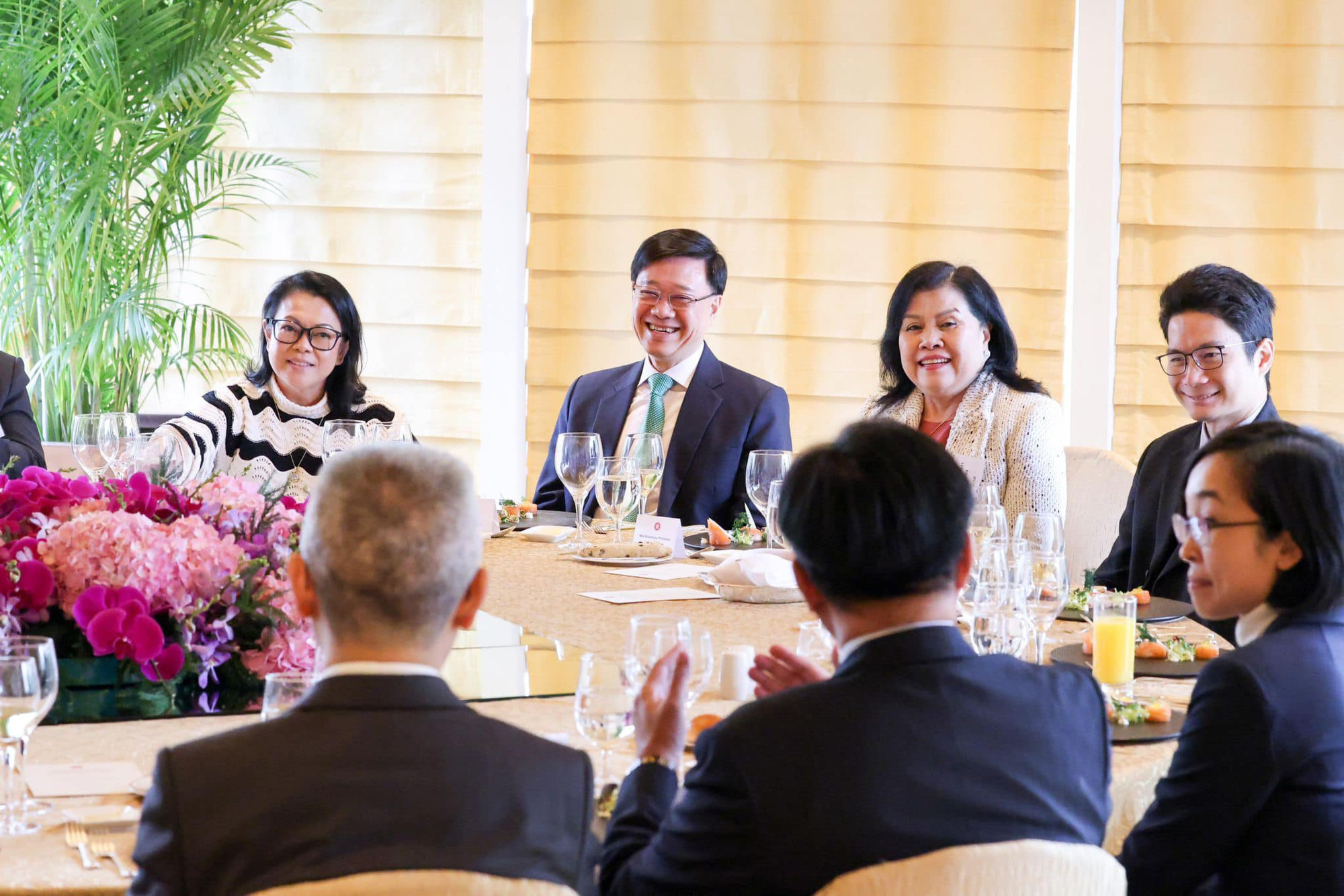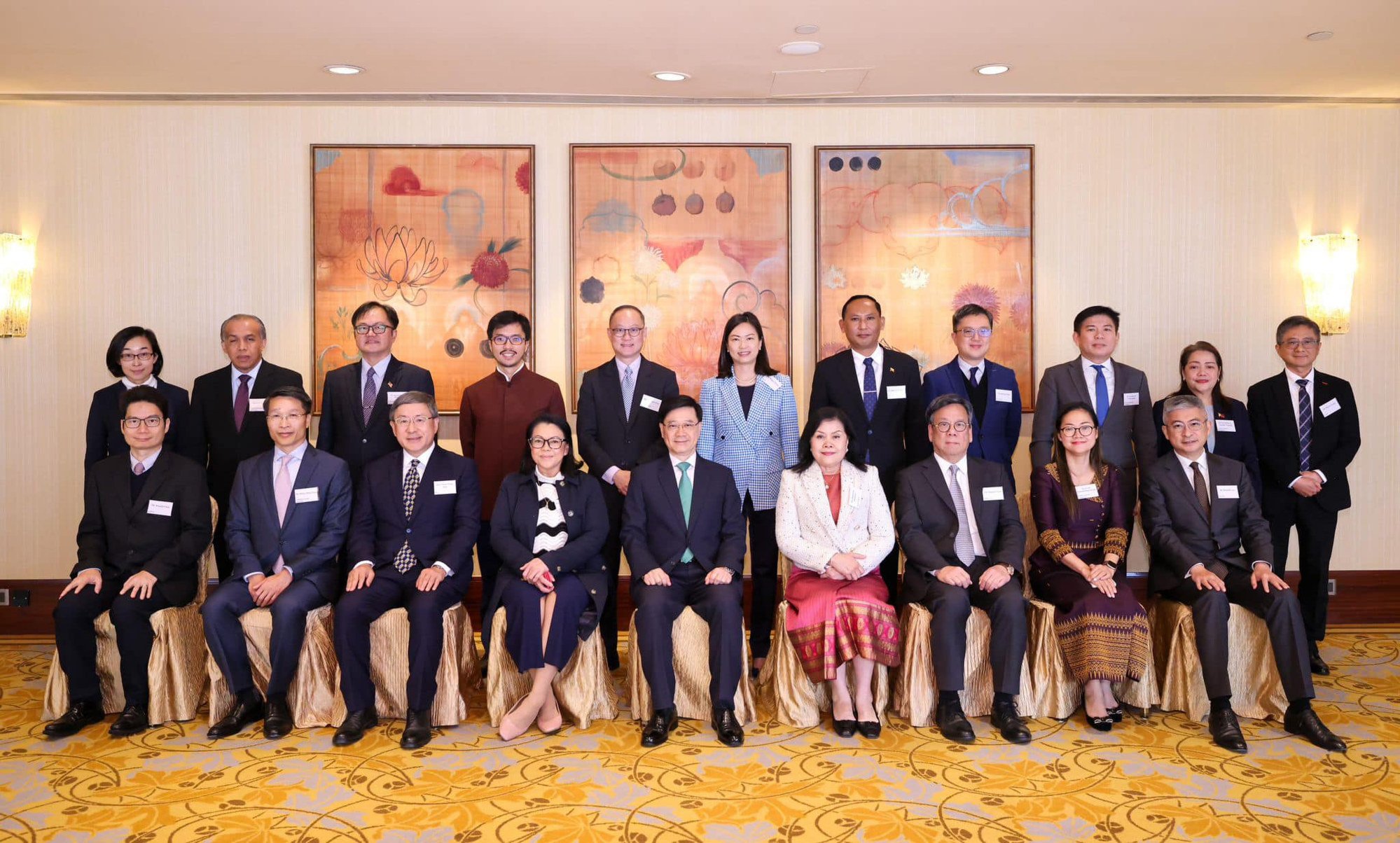
Hong Kong leader John Lee hopes for consistent meetings with top Asean diplomats, as he eyes closer ties
- John Lee joins a ‘lively and fruitful exchange’ lunch meeting with consuls general of 10-member Asean bloc
- ‘We see a strong impetus for economic development and unlimited potential in Asean, which is now the fifth-largest economy in the world’ he says
Chief Executive John Lee Ka-chiu on Monday said he had a “lively and fruitful exchange on a wide range of topics” during a lunch with the consuls general of the 10-member Association of Southeast Asian Nations (Asean), including dean Ainatol Zahayu Mohammad.
“Hong Kong and Asean enjoy thriving bilateral trade and economic relations,” Lee said in a Facebook post. “Asean has been our second-largest trading partner for over a decade.
“We see a strong impetus for economic development and unlimited potential in Asean, which is now the fifth-largest economy in the world.”

Lee said he hoped meetings could take place regularly to consolidate ties with the bloc.
In 2022, bilateral trade in goods between Hong Kong and Asean reached a record high at HK$1.3 trillion (US$165 billion).
The city leader highlighted a substantial growth in Asean tourist arrivals in Hong Kong, especially from the Philippines and Thailand.
“I am very glad to see that senior officials from Asean member states pay frequent visits to Hong Kong, whether for attending high-profile events or meeting with their Hong Kong counterparts,” Lee said.
“I hope that Hong Kong will continue to be the top destination of visits for friends from Asean, and we will work towards forging closer ties with Asean.”

In July last year, Lee oversaw the signing of 33 agreements with Singapore, Indonesia and Malaysia during a week-long tour. The agreements covered trade and commerce, investment and finance, innovation and technology, logistics, academic research and cultural exchange.
The three countries also reaffirmed their support for Hong Kong to join the Regional Comprehensive Economic Partnership, the world’s largest free-trade bloc, made up of 15 Asia-Pacific countries, including all Asean nations.
Tony Ho, director of the Indonesia Chamber of Commerce, said the government should develop closer connections with Asean business sectors amid the economic downturn while consolidating ties with top diplomats.
“The government needs to encourage more participation from the business community, especially connecting with chambers of commerce from Asean countries to widen the network to allure investments,” Ho said.
“For us, we will actively invite Indonesian enterprises to establish companies in Hong Kong, particularly in the food and restaurant sectors. It will be more practical in boosting the economy by inviting more foreign investments, which Hong Kong is lacking now.”
Simon Lee Siu-po, an economist and an honorary fellow at the Chinese University of Hong Kong’s Asia-Pacific Institute of Business, said authorities should have concrete plans in place that would directly benefit people from Asean countries.
“The government could prioritise efforts towards the Philippines and Indonesia, considering the significant number of domestic helpers from these countries who contribute to Hong Kong’s economy,” Lee said.
“Concrete plans, such as travel rewards, scholarships or tax incentives for enterprises, would be more effective in attracting tourists, talent and investment, rather than relying solely on diplomatic gestures.”

